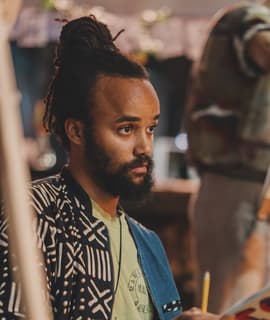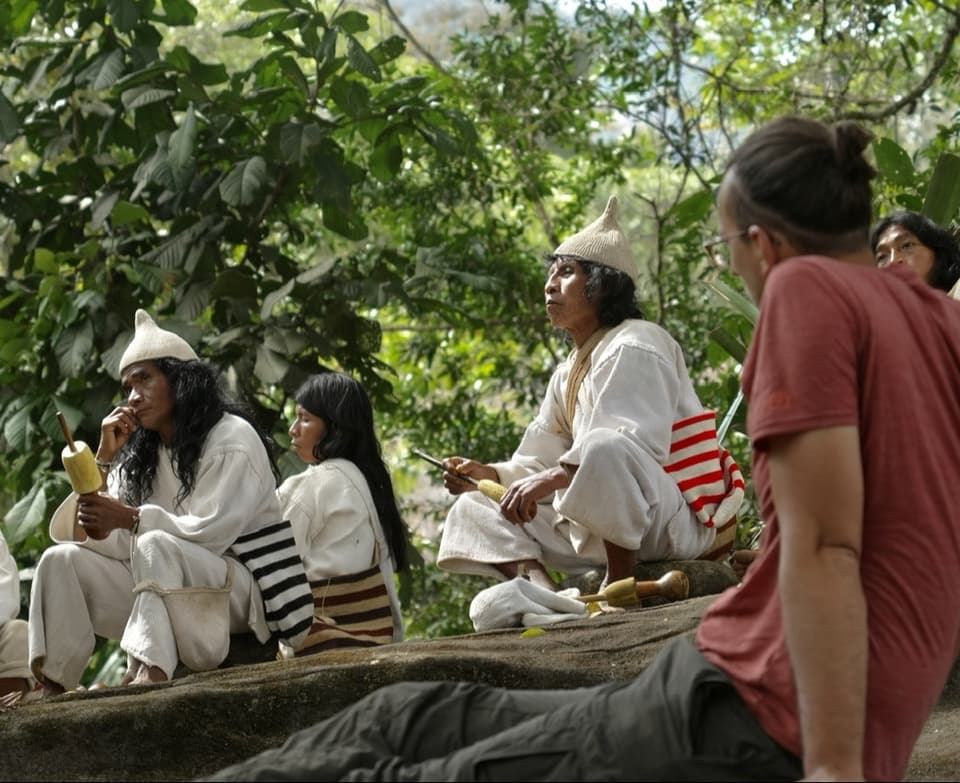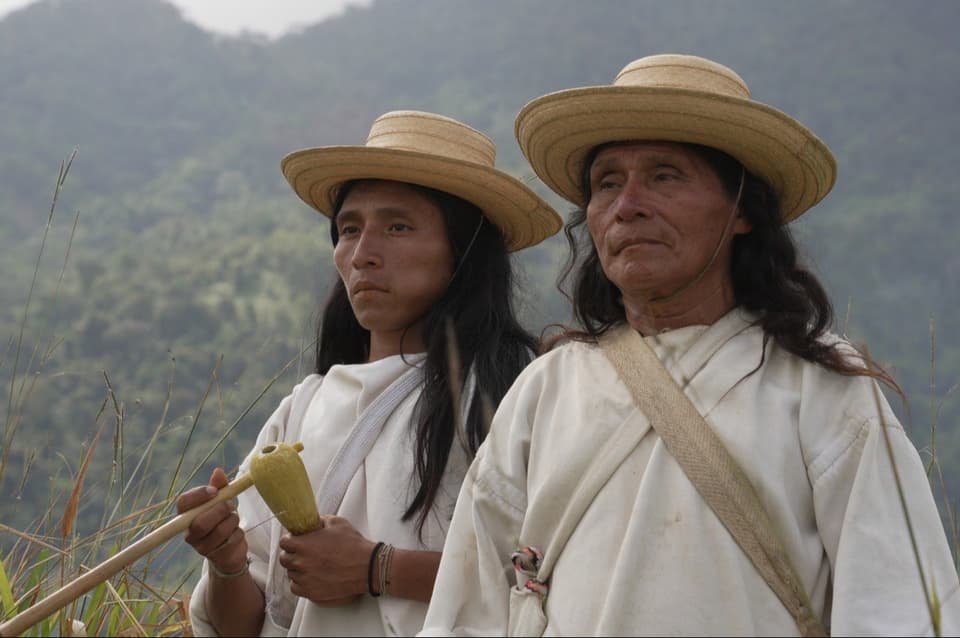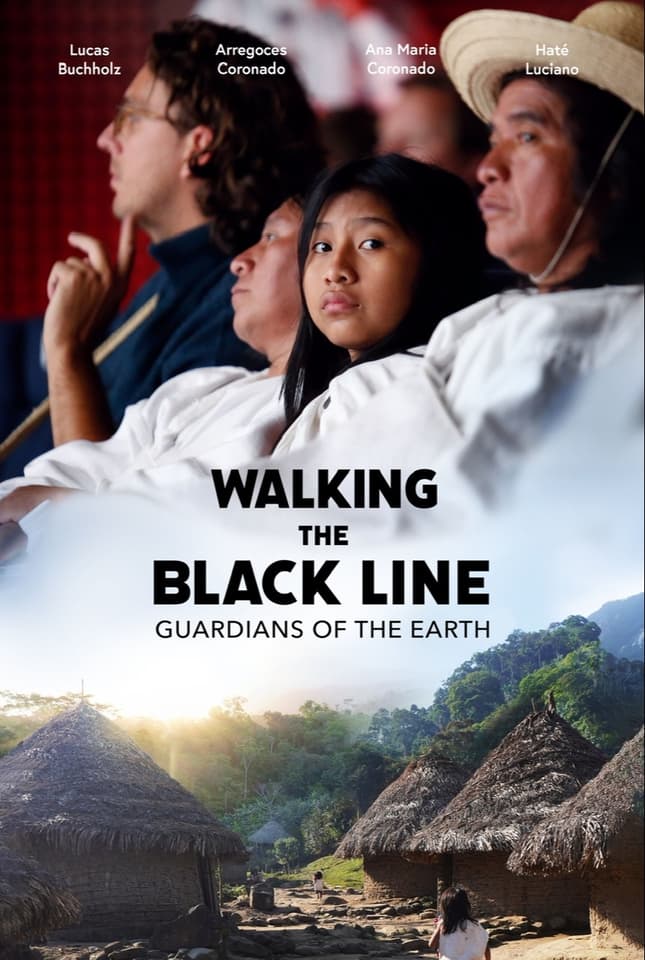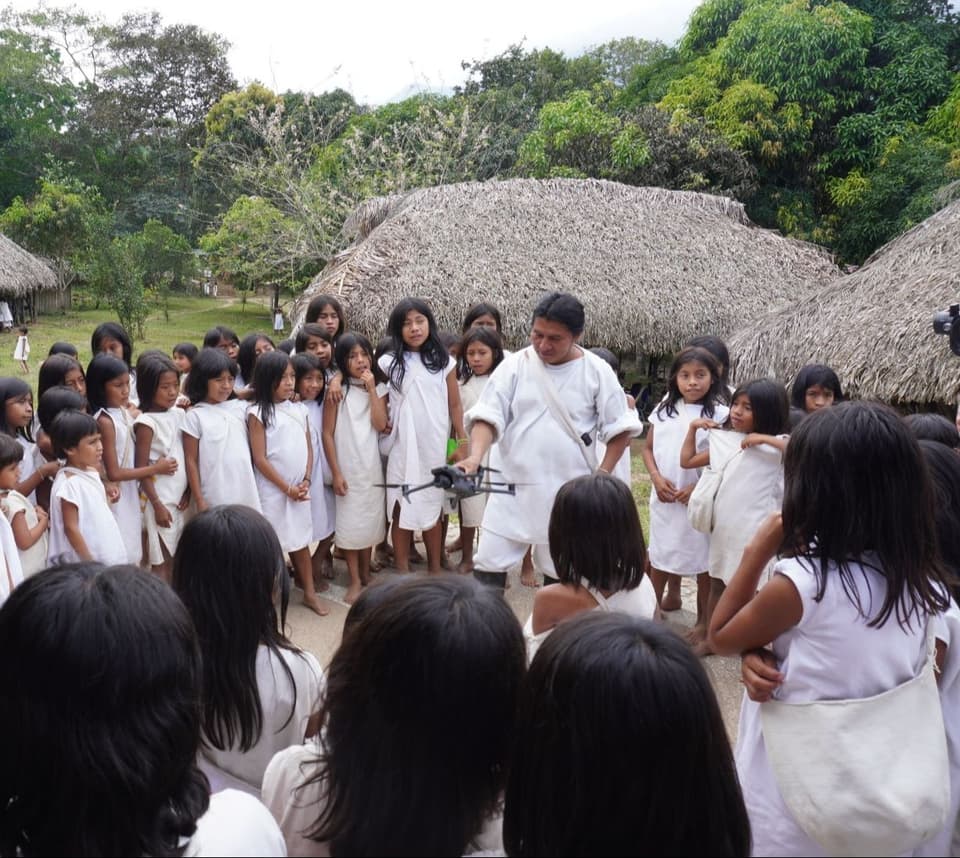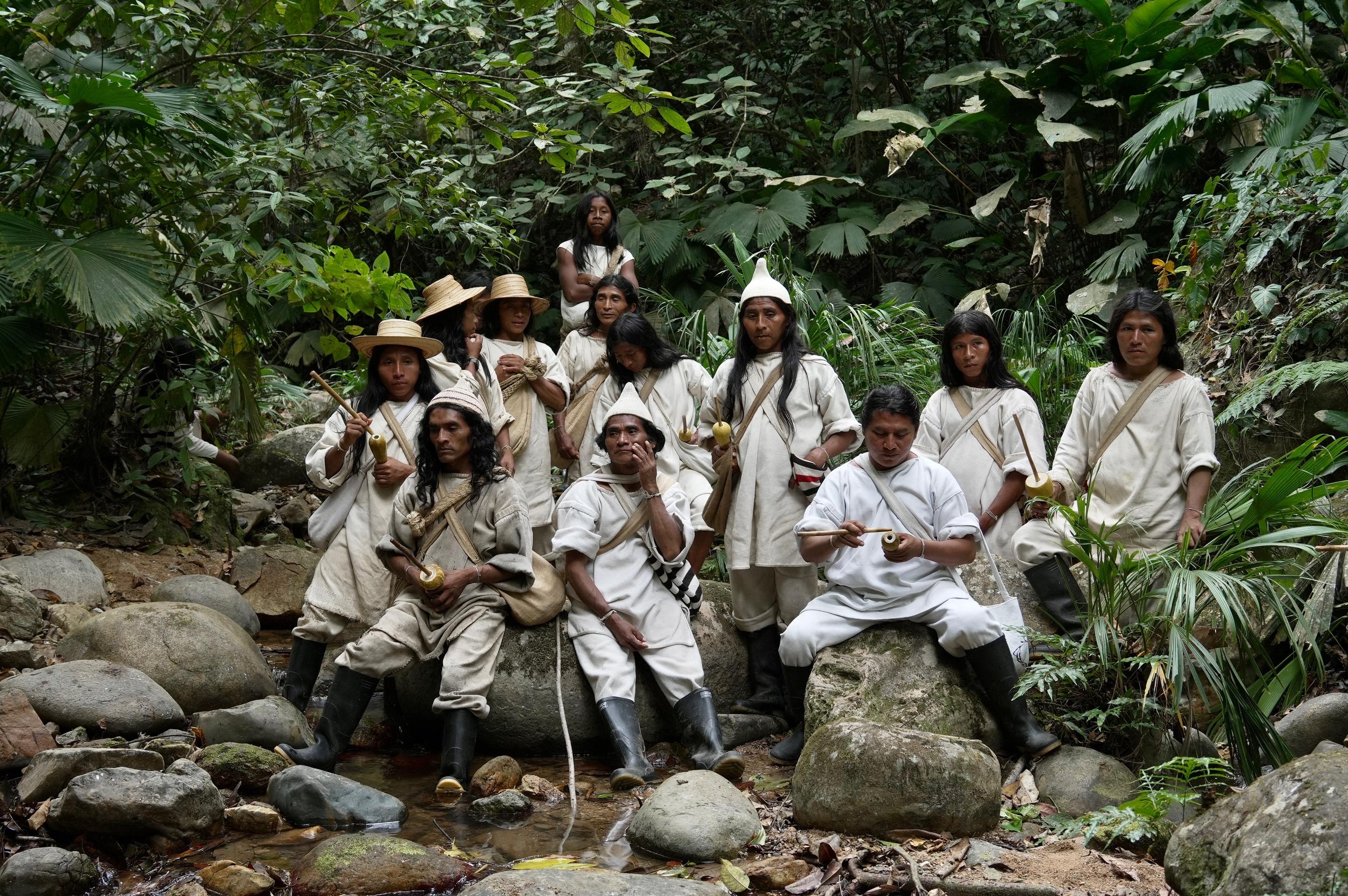
Walking The Black Line - Production Log
Representative of the Kagaba (Kogi) of the Sierra Nevada in Colombia Principal of the Kogi school, translator of the Mamos, one of the first traditional leaders with a university degree in economics. One of the first Kogi to ride a motorbike. 🏍️
Born in the indigenous Kogi village in Domingueca in Sierra Nevada de Santa Marte in Colombia, she‘s been chosen by the elders to study our western worlds and become a defender of her people and a protector of mother earth.
Filmemacher, Kameramann, Cutter, Spielplatzdesigner. Gründer von FILMING FOR CHANGE, dreht und schneidet Dokumentarfilme seit über 20 Jahren. Lebt seit 15 Jahren in Gemeinschaften und seit 6 Jahren in der Gemeinschaft Tempelhof mit 150 Menschen.
Enjoying fatherhood, storytelling, worldbuilding, learning from mother earth & weaving new thoughts from what she taught. I like perfectly ripe blackberries and good brushes. Co-founder of @konduktum. Working for systemic change in the creator economy!
